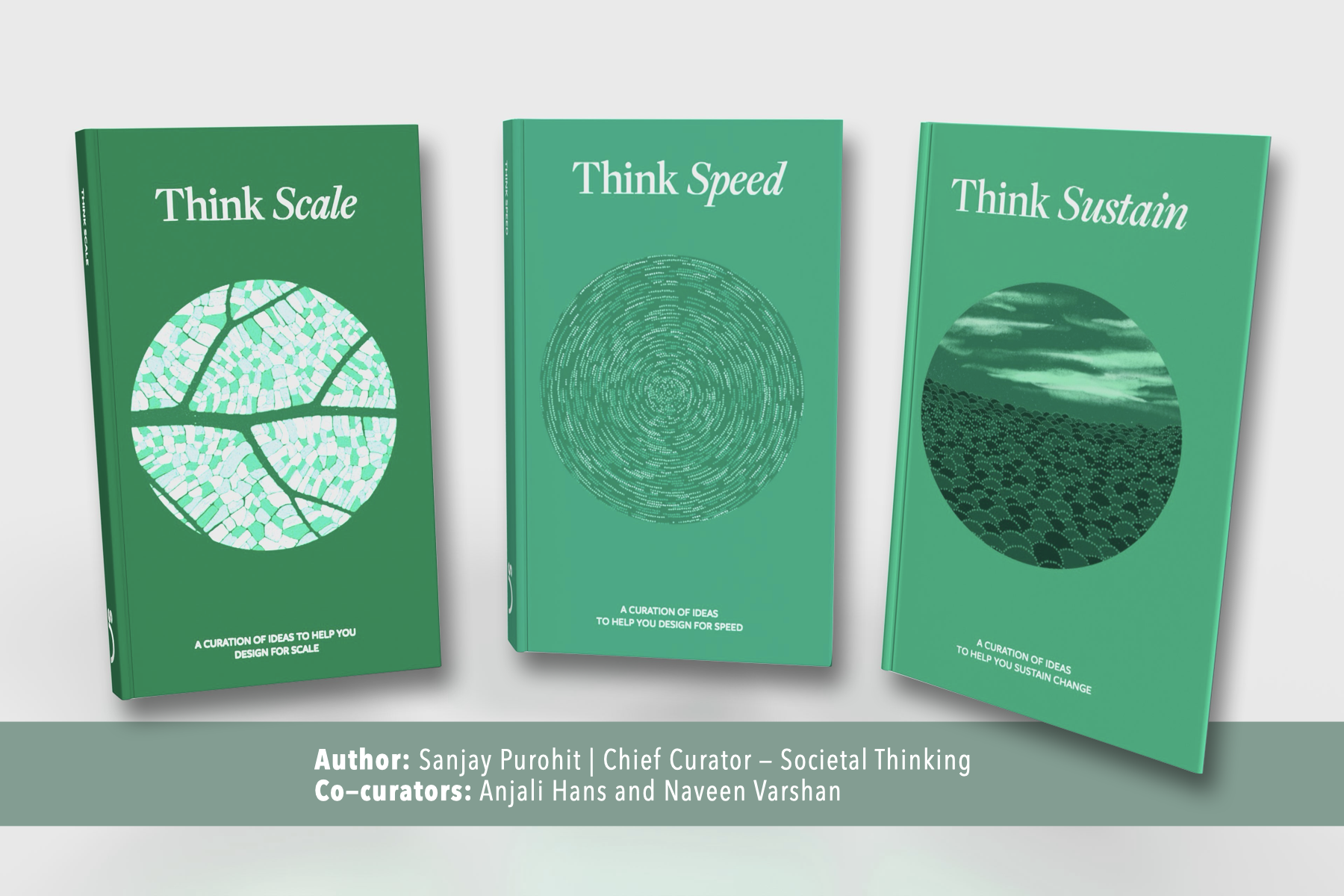COVID19 hit the world like a Tsunami Wave. The world was largely unprepared to deal with the complications it brought in and the speed with which the response had to be built. For India it threw up unique challenges like how to do direct benefit transfer to more than 100 million migrant workers most of whom lost their jobs and had no income, how to connect parents and teachers in government schools who were used to connect with each other only physically, how to allow vehicles carrying essentials to travel from one state to another seamlessly during stringent lockdowns, how to provide reliable covid vaccination certificates to millions of Indians (many of whom had no other health record) and many more.
Societal Platforms are designed to withstand such dynamic, evolving nature of problems and the open, interoperable, configurable infrastructure makes it easy to repurpose parts of a platform and respond to new challenges as they emerge. We call these reusable building blocks, Societal Exponents. Like lego, Exponents can be quickly assembled to solve similar problems in other domains. So, with minimal resources, time and effort, they can accelerate problem solving. Share on X
In mathematical terms, Exponent (/ɪkˈspəʊnənt,ɛkˈspəʊnənt/) is a symbol written above and to the right of a mathematical expression to indicate the increase in the base number like 25 where 5 is the exponent that increase the base number 2 that many times. Exponents in our parlance, have similar powers, they accelerate the delivery of base solutions, many times over.
Societal Exponents may reuse knowledge, process, networks, technology or combinations of these to bring speed, efficiency and higher reach.
Here are some examples of Societal Exponents in action.
Project ECHO: Repurposing networks
Project ECHO’s model links expert specialist teams at an academic ‘hub’ with primary care clinicians in local communities – the ‘spokes’ of the model to move healthcare knowledge faster. With the COVID-19 pandemic forcing many countries including India to go into a full or partial lockdown, moving knowledge without moving people became more critical than ever before.

Pre-covid, ECHO had been working with partners like PGIMER Institute, NIMHANS, AIIMS Delhi, Piramal Swasthya and 39 others health partners as well as central and state government bodies, running ECHO programs across areas like TB, mental health, hepatitis, cancer prevention and treatment etc.. These networks reached doctors, technicians, primary healthcare workers and other medical staff across many cities and towns in India.
In February 2020, ECHO launched their COVID19 program and quickly ramped up to 3 to 5 sessions with more than 12000 people being trained via the ECHO platform daily. For their COVID training, ECHO tapped into their pre-existing networks to eventually onboard upwards of 500,000 healthcare workers over 2 years.
Reusing these pre-existed networks allowed Project ECHO to move knowledge at an exponential pace, a life-saver during the pandemic.
eGovernments Foundation: Repurposing technology.
In India, as in other countries, the main way to stop the spread of the Covid virus was to vaccinate all adult citizens, as quickly as possible. The Indian government set an ambitious goal to vaccinate the country’s frontline workers by March 2021, and the majority of its adult population by the end of the year. A challenging goal, to say the least. The CoWIN platform was developed to manage the last mile delivery of the vaccination. But, there was one emerging need – valid, secure, digital certificates. As people started getting back to work and life post the multiple lockdowns, the country needed a tamper-proof and digital way to issue and manage vaccination certificates, across different languages and with easy ways to access via mobile or web.
Enter DIVOC, an open-source digital platform, that helped the government to manage and distribute secure and tamper-proof COVID-19 vaccination and test result digital certificates. For the government, this meant a way to distribute the certificates at scale. For citizens, this helped them ease back into their normal activities, with easy access to their up-to-date certificates, right from their devices, and as soon as they completed their vaccinations.

DIVOC was built on Sunbird RC (registry and credential) framework, a “low code” framework to enable organizations to rapidly build next generation electronic registries and verifiable credentials. Reusing this infrastructure enabled an initial release in 2 months and scale readiness in another 2 months. DIVOC was integrated with Co-WIN in January 2021, making India the first country where the digital verifiable credentialing was implemented. In 9 months time, billion vaccination certificates were issued and by May 2022 that number reached 2 Bn.
eGovernments Foundation is the core maintainer of this project and with the experience of driving a nati
on-scale rollout in India, they started expanding the footprint of this digital public good globally. DIVOC was launched in Sri Lanka, Philippines, Indonesia, and Jamaica, in the subsequent months.
The power of this verifiable certificate that is printable, multilingual and inclusive, but natively digital is quite transformational. This is the building block approach in action! Share on XLearn more about Societal Thinking, a way to reimagine and build exponents that can help us solve social problems faster, at scale.
 Back
Back


